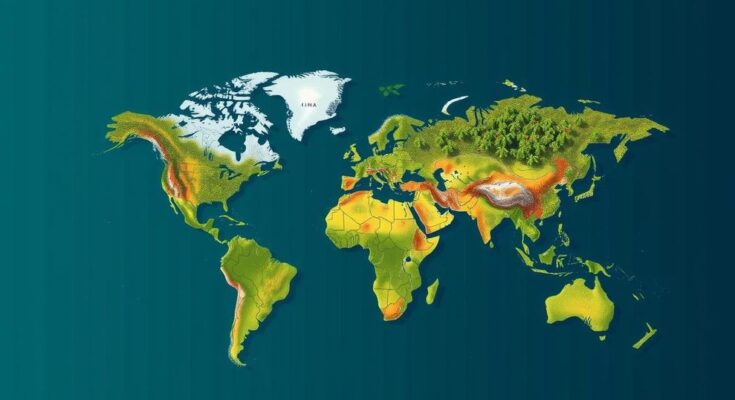The potential return of Donald Trump to the presidency poses significant challenges for environmental policy amidst ongoing climate crises. The recent COP29 conference highlighted disparities in commitment among global leaders, with concerns about the intersection of climate change and displacement emerging. As Trump prepares his administration, environmental advocates express skepticism regarding a regression in climate protections, particularly impacting low-income and marginalized communities.
The narrative of climate change and its ramifications resonates deeply in contemporary discussions regarding environmental policy, especially in the context of an anticipated second Trump presidency. The 2013 film “Elysium” serves as a poignant metaphor for current realities, depicting a privileged space for the affluent amid a deteriorating Earth. In truth, many vulnerable communities within the United States, including those in Flint, Michigan, continue to grapple with severe environmental injustices, reflecting systemic neglect from those in power. Recent climate disasters have disproportionately affected places once considered secure, prompting concerns about who will be impacted by the policies of an incoming administration, which historically downplayed climate issues and sought to dismantle crucial regulations. World leaders recently convened at the COP29 climate conference in Baku, Azerbaijan, where the absence of representatives from major carbon-emitting countries raised alarm over global commitment to combat environmental decline. Concurrently, Filippo Grandi, the U.N. High Commissioner for Refugees, highlighted the significant intersection of climate change and displacement, warning that vulnerable populations already suffering from conflict and insecurity face increasingly dire futures. Despite climate advisers expressing optimism regarding future policies, doubts linger about former President Trump’s potential regression to outdated energy practices and climate denial, following a track record of rolling back environmental protections. Trump’s past withdrawal from the Paris Agreement and actions favoring fossil fuels raise legitimate questions about his future engagements with international climate treaties. As Trump assembles his team, including individuals like former representative Lee Zeldin for the EPA, skepticism remains regarding their commitment to robust environmental safeguards. Additionally, the controversy surrounding private wealth and government roles, particularly with individuals such as Elon Musk involved in newly formed regulatory positions, underscores the tension between corporate interests and public welfare. Ultimately, ordinary Americans relegated to environmentally compromised regions, such as Cancer Alley in Louisiana, face the greatest stakes in these unfolding scenarios as governance shifts towards profit over protection. This imminent change in leadership calls for an urgent reevaluation of environmental policies that directly affect the most marginalized populations, raising broader questions about equity and ecological stewardship moving forward.
The ongoing consequences of climate change and environmental policies have become increasingly evident, pushing societies toward critical discussions about governance and societal structures. The juxtaposition of wealth and environmental degradation places considerable strain on vulnerable communities that bear the brunt of policy decisions. As climate change continues to exacerbate existing challenges, particularly for low-income and marginalized populations, it is imperative to scrutinize the philosophical and functional foundations of environmental stewardship as political landscapes shift. This consideration is particularly relevant as the U.S. government transitions between administrations, especially under figures like Donald Trump, whose previous policies have been largely dismissive of climate science.
In summation, the intersection of climate policy and socio-economic disparities highlights the urgent need for honest leadership that prioritizes environmental protection. As the world grapples with the enormity of climate change, the upcoming political landscape will undoubtedly influence the resilience of impacted communities and the effectiveness of global climate initiatives. The challenges outlined necessitate a proactive and inclusive approach that safeguards the environment while addressing the ramifications of climate injustice experienced by the most vulnerable populations.
Original Source: rollcall.com




